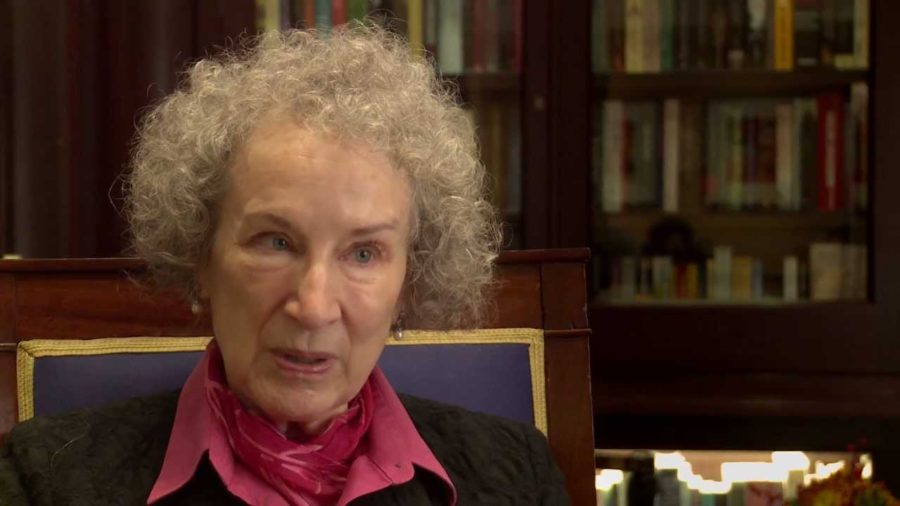Margaret Atwood: So, I write about something called the future, which is a wonderful thing to write about because nobody can fact-check it. But I try to base my futures on realities that are with us today. So I’m not writing about Planet X. I’m not writing about a galaxy far, far away. I’m writing about this Earth in the near future. And everything that I’ve put in has a basis in reality, something we’re doing now, something we’ve already done, something we’re thinking of doing.
Eveline van der Ham: So you write about possible futures?
Atwood: I write about probable futures. [laughs] Possible and probable.
Van der Ham: How do you think we could change the world?
Atwood: We have already changed the world a lot, not always for the better. Some of it’s for the better, as far as we human beings are concerned. But every time we invent a new technology, we like to play with that technology, and we don’t always foresee the consequences. And every time we change the source of our energy, we change our whole society and our whole set of values. By which I mean that amongst hunter-gathers there was one set of values, amongst agriculturalists there was another set of values. Amongst carbon-based fuel people, which we are at the moment, cheap energy, there’s another set of values, and we will now have to develop a fourth because we could not continue burning carbon fuels at the rate we have been burning them without killing ourselves.
Van der Ham: So do you see technology as a curse or a blessing?
Atwood: It’s always a double-edged sword. [laughs] Cuts both ways. You can’t say it’s a curse or a blessing, you have to look at each piece of technology, see what it accomplishes on the positive side, and then what the side-effects are on the negative side.
For instance, our ability to discover and invent has allowed us to open the biggest Pandora’s Box in the world, which is the ability to create new biological species. That can be a good thing: better potatoes. It can be a bad thing: more destructive microbes. So you can’t say good or bad without saying specifically what.
The most important thing for the world as a whole is to maintain the oxygen level that allows us to live on land. And how are you going to do that? Well, first of all, you’ll have to avoid killing off the ocean. Because the blue-green algae in the ocean produces 60–80% of the oxygen that we breathe. And the oxygen that we breathe was created by the blue-green algae 1.9 billion years ago. Before that we didn’t have oxygen in the air. So I’d say for the world as a whole, that would be number one priority. And then we can talk about the rest, as long as we know that we’re still going to be alive and that other life forms on the planet will be alive, too.
Van der Ham: Thank you very much.
Atwood: Thank you.
Further Reference
How to Change the World?, the 2012 Nexus Conference event page
Citations
- Kulturen im Anthropozän: Eine interdisziplinäre Herausforderung, “In the Fissures between Two Epochs: Doomsday Paralysis and/or Joining the Trilobites”
- Atwood’s representation of lack of enviromental ethics in the novel the year of the flood
- Atwood’s representation of lack of enviromental ethics in the novel the year of the flood
- Imagining Beyond Extinctathon: Indigenous Knowledge, Survival, Speculation–Margaret Atwood’s and Ann Patchett’s Eco-Gothic
